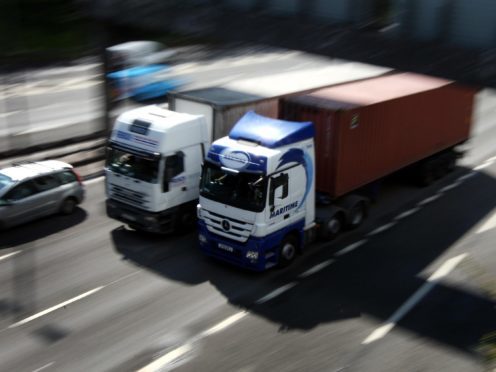
Changes to the amount of biofuel required in fuel mixtures will see the amount of renewable fuels used in the UK’s transport sector double by 2020.
The Department for Transport is introducing new rules, which come into force on Sunday, requiring those who supply at least 450,000 litres of fuel to transport companies each year to increase the amount of biofuel mixed into what they sell.
The current rules, which govern fuel sent to haulage firms, airlines and other companies in similar industries, requires the biofuel mix to be just 4.75 per cent. The new rules will see the amount of renewable fuel in the mix increase to 9.75 per cent in 2020 and 12.4 per cent in 2032.

Transport minister Jesse Norman said: “We are committed to reducing carbon emissions from transport to tackle climate change, and to making the sector as sustainable as possible. Increasing our use of renewable fuels is a key part of this.
“The changes we are introducing will double our carbon emissions savings from the renewable transport fuel obligation scheme by doubling the use of renewable fuels and reducing reliance on imported fossil diesel.
“This will deliver emissions savings equal to taking hundreds of thousands of cars off the road.”
Willie Walsh, chief executive of the International Airline Group, said: “Providing sustainable fuel production for aircraft with the same economic incentives given to road vehicles is long overdue. This is a major step forward to help the UK aviation industry meet its carbon reduction targets.
“These incentives have enabled alternative fuel sources to be developed for cars and lorries, while aviation has traditionally been heavily dependent on fossil fuels. This government initiative will support our plans to build Europe’s first waste to jet biofuel plant in Britain, creating UK jobs and growth.”

Enjoy the convenience of having The Sunday Post delivered as a digital ePaper straight to your smartphone, tablet or computer.
Subscribe for only £5.49 a month and enjoy all the benefits of the printed paper as a digital replica.
Subscribe